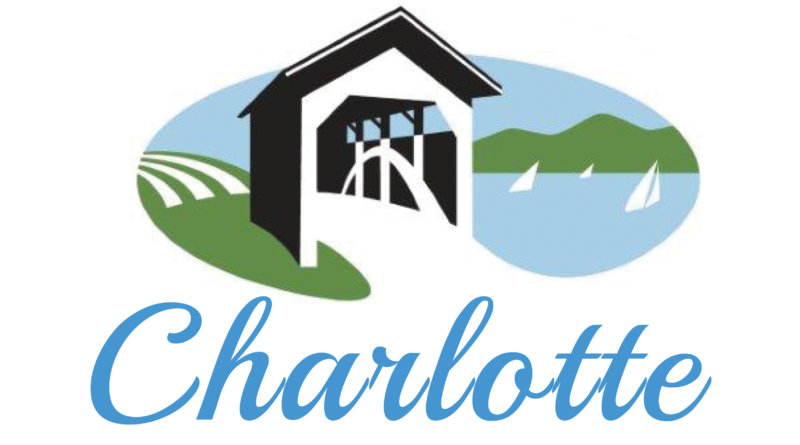Petition for town manager switch on hiatus
The group pushing Charlotte to switch to a town manager form of municipal government has put its petition on hold for the time being.
Lane Morrison, who has been at the forefront of the petition signature collection, agreed at the selectboard’s meeting on April 17 to wait on discussions about the proposed change until after the May 2 town budget revote.
Voting on the revised budget will take place by secret ballot from 7 a.m. until 7 p.m. this Tuesday in the Charlotte Town Hall.
At least 200 signatures have been collected, enough to require a vote on the town manager issue, but for now the petition will not be formally submitted.
Morrison mentioned returning to the town manager discussion later in May, while selectboard chair Jim Faulkner mentioned July.
 Morrison is a former chair of the selectboard. He thinks the town, and in particular selectboard meetings, would run more efficiently with a town manager rather than a town administrator.
Morrison is a former chair of the selectboard. He thinks the town, and in particular selectboard meetings, would run more efficiently with a town manager rather than a town administrator.
And with town administrator Dean Bloch retiring at the end of October, Morrison thinks now is the time to make the switch — or at least consider it.
“Things are getting more complicated. The purpose of the town manager is to leave the selectboard with key duties,” Morrison said. “A town manager by state statute is able to take on a lot of responsibilities to manage contracts and manage employees, but all under the supervision of the selectboard.”
He pointed out that 73 percent of Vermont towns with more than 2,500 residents have a town manager. Although a town manager may be paid more than a town administrator, Morrison thinks it would not be more costly to the town because of the functions a town manager can perform and by saving money by requiring less consultants.
Faulkner repeatedly asserted the need for town employees and residents to be informed about the pros and cons of switching to a town manager.
“All the people who are affected by that change need to be informed, be part of the process and part of the decision,” Faulkner said. “There’s a lot of pros, but there are some cons. I think we really need to establish the pros and cons.”
Rather than rushing to switch to a town manager before Bloch’s replacement is hired, Faulkner would like to hire a replacement that started as a town administrator and transitioned into a town manager. Although it is six months before Bloch retires, Faulkner said the town has four months to find a replacement because he would like for the new hire to work with Bloch for two months to smooth the transition.
If Charlotte decides to go to a town manager, it will have another big decision to make about whether the duties of a town manager would be defined by state statute or would the town choose to draft a charter outlining the new position. If it chose the charter route to a town manager, it could take up to a year to change to the position because, besides the process of drafting the charter, the charter would have to be approved by both houses of the state legislature and signed by the governor.
Morrison said if he “pulls the trigger” by submitting the petition for a town manager, the town would have 60 days to schedule a town meeting where the issue would be confirmed or denied by voice vote.
“I think it’s a little too soon to do that. I’d like to see more discussion, more feedback on it,” Morrison said. “Some of the folks that signed the petition said, ‘You know, I signed it. I support the concept. I don’t necessarily support going to a town manager yet, but I want to hear more about it.’”
As chair Faulkner has been diligent about trying to keep selectboard meetings on task and sticking to each agenda’s timeline, but still meetings often extend to four hours. He is attracted to the notion of shorter meetings.
Morrison promised that a switch to a town manager would shorten selectboard meetings, pointing out that Shelburne and Hinesburg both have town managers and their agendas usually have just three items. And selectboard meetings in both towns run for two hours.
He pointed out that a good bit of time at that evening’s meeting had been taken up with nominating people to town boards and commissions and said that could have been handled by a town manager. He also mentioned curb cuts and permits as examples of things that could be taken off the selectboard’s “radar,” so it could more effectively respond to bigger items.
One of the most important things the selectboard should be doing is focusing on the future, said former member of the planning commission, Peter Joslin. “We want to be leading the changes that we want to see in the future, not be kind of dragged by them.”
When the town was discussing changing from a zoning board of adjustment to a development review board in 2021, there was a lot of opposition and claims about what would happen if that change was made, said chair of the development review board Charlie Russell. “A lot of the claims about what might happen didn’t come true, and the reality is the planning commission has been able to focus on land-use regulation changes.”
Board member Frank Tenney expressed concerns that, if a town manager is taking care of a lot of things the selectboard handles now, it will reduce opportunities for public input on those issues.
Russell responded, “With a town manager you can get an answer five days a week, just like that. Whereas, to try to come in front of you guys, you’ve got to wait two weeks.”

